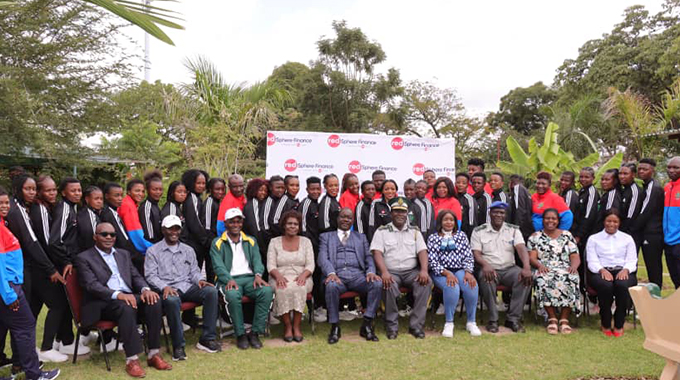Learners pen traditional recipe book

Thandeka Moyo-Ndlovu, Senior Health Reporter
IMAGINE owning a recipe book on how to prepare traditional delicacies like umcaba, umxhanxa, amangqina, isijeza, isiswayi lesinkwa somfahla – healthy traditional foods that our forefathers relied on for long life and a remarkable body mass index.
These traditional foods are part of the African culture. However, few books have been published with recipes for these dishes, which could ultimately be an answer to deteriorating lifestyles.
From thousands of recipe books online and on bookshelves, African traditional foods do not dominate the literature.
But this is set to change. Seven A-level learners at Eveline High School in Bulawayo have developed one such book.
Titled “Roots Beneath”, the first volume will be published in IsiNdebele, Tonga, Nambya, Kalanga and ChiShona.
The book will cover the main food types of each culture with all recipes having an English translation.
In an interview, the girls said they did their research by collecting data from their grandmothers who still have an appreciation of traditional dishes from all over the country.
They said their goal was to curb acculturation in food heritage, which is in line with Sustainable Development Goals on health and well-being, nutrition and quality education.
Makaitashe Nyota, the public relations officer for the team, said the book is almost ready as they have gathered data on more than 100 traditional foods from different cultures in Zimbabwe.
She said the book will be out during the first quarter of the year.
“We were inspired by one of our teachers Mr Joubert Ngwenya. We realised that there is a huge demand for indigenous food, but there is a lack of knowledge on how it should be prepared or preserved,” she said.
“This knowledge is still being passed from one person to the other through the word of mouth, which is not sustainable.
Book shops are filled with recipe books of western dishes, but there is nothing on what sustained the lives of our forefathers.”
Makaitashe said traditional foods are healthy and help prevent the prevalence of non-communicable diseases.

Eveline Pupils compile recipe book
“The book will also promote the infusion of indigenous foods and recipes in schools’ curriculum by providing a multi-cultural recipe from different cultures so that members of the public have an appreciation of other cultures,” she said.
“To appeal to the 21st-century mind, we have two innovations to our book, one being the ‘pimp my recipe’ section where we add a little foreign or so-called modern twist to the indigenous recipe, and the second innovation is embedding QR codes to access videos and audio explanations of these recipes.”
Nyasha Makate, the team leader said: “We understand that in as much as this may sound far-fetched, our forefathers barely suffered from lifestyle-related diseases and conditions such as obesity because they consumed indigenous foods.”
She said through their book, they intend to revive the legacy of good health through what people eat.

Eveline High School headmistress Sithabile Moyo (centre) poses for a photo with A-Level students who are compiling a recipe book
“The second volume will explore the herbs and plants at our disposal, including their uses because we have vast medicinal plants that can help cure many diseases,” said Makate.
“We hope to inspire other African countries to take up this idea so that African cuisine is preserved. The time is now for us to be proud of our identity and promote it in every possible way.”
Nicole Moyo, a team member, said: “As young people and the future of this nation, we are concerned about losing our heritage in general, especially when it comes to food. We are now all familiar with western dishes yet we cannot talk about our identity or history.”
She said there is a need to document traditional recipes for future generations.

Eveline students and their headmistress
Eveline headmistress Sithabile Moyo commended the learners for coming up with the idea, saying the project will help bring about change in terms of lifestyle among Zimbabwean communities.
“We commend the girls for a job well done and I am pleased to know that they did all data gathering and we will soon have a recipe book from our school. They will need sponsors to help publish the book, hence I urge well-wishers to chip in,” she said.
“Members of the public should be on the lookout for this book as it will help safeguard their health. Traditional foods are a solution to some of our health problems.”–@thamamoe












Comments